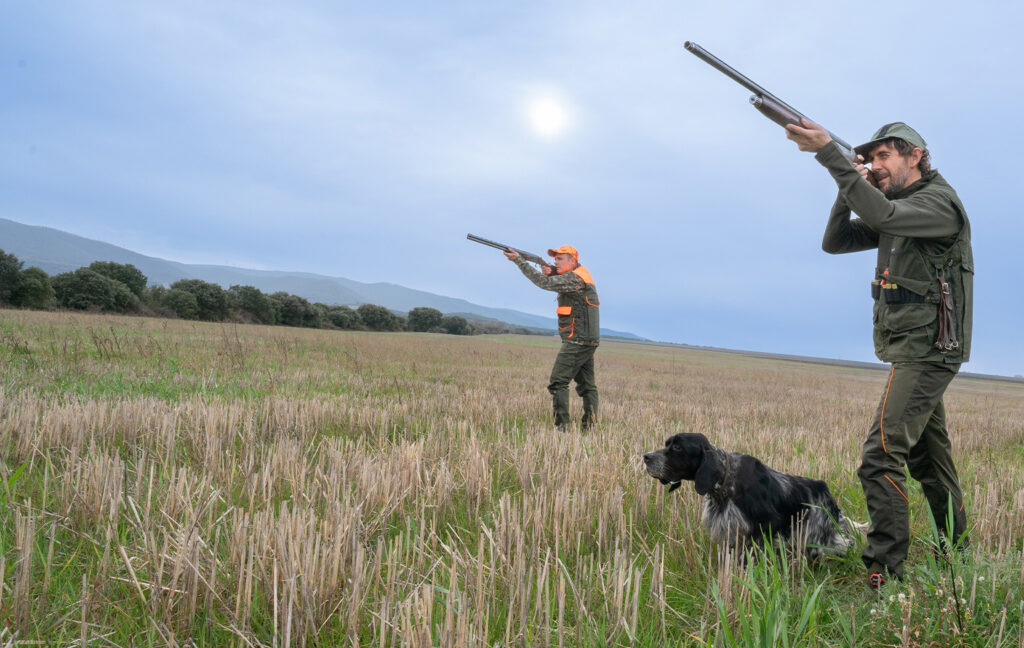
Introduction to hunting: Rules, requirements and tips for responsible practice
Hunting is an ancient activity that has evolved over the centuries, adapting to modern times with a focus on sustainability and conservation.
In order to hunt responsibly, it is essential to comply with a series of legal, ethical and technical rules and requirements that guarantee not only the well-being of the environment, but also the safety of hunters and the general public.

In this article, we will address the fundamental principles for getting started in hunting in the right way, analysing the basic regulations, the mandatory requirements and the best tips for beginners who wish to get into this exciting practice.
Regulations and legal requirements for hunting
Hunting in Spain is highly regulated by regional and national regulations that vary according to the region, the type of hunting and the species allowed. To start hunting it is essential to know the local laws and comply with the following requirements:
- Hunting licence: This is compulsory for anyone wishing to hunt in Spain. This licence is issued by the corresponding autonomous community, and to obtain it you must pass a theoretical-practical exam on hunting regulations, species, weapons and safety. It is important to remember that each autonomous community may have specific requirements.
- Civil liability insurance: The practice of hunting involves certain risks, so it is compulsory to have civil liability insurance to cover possible damage to third parties.
- Weapons permit: To hunt with firearms, it is necessary to have a firearms licence, issued by the Guardia Civil. The process of obtaining it involves passing psycho-technical tests, medical evaluations and specific training in the safe handling of weapons.
- Hunting preserve or hunting permit on private land: Hunting is only allowed on land designated as hunting preserves or with the explicit authorisation of private landowners. Hunters must respect the geographical limits of these areas and know which species are allowed in each area.
- Respecting closed seasons and hunting seasons: Hunting laws include specific seasons for each species. Outside these periods, hunting is strictly prohibited. It is essential to keep up to date with the hunting seasons, which vary according to the species and the autonomous community.
Ethical principles of responsible hunting
Beyond the regulations, responsible hunting implies a series of ethical values that all hunters must respect. Sustainability and respect for wildlife and the ecosystem are fundamental pillars to guarantee the conservation of species and the continuity of hunting activity in the future.
- Species conservation: Hunters must know and respect the animal populations in each area, avoiding hunting endangered species or those with limited populations. Selective hunting is key to maintaining the natural balance.
- Not wasting prey: Once the prey has been captured, it is the hunter’s obligation to make full use of it, avoiding unnecessary waste of meat and other usable products.
- Respect for animals: The responsible hunter always seeks to cause as little suffering as possible to the prey. To this end, it is important to use appropriate weapons, practice precise aim and follow protocols that guarantee a quick and clean kill.
- Safety first: Safety is paramount in hunting. The hunter must always be aware of his surroundings, maintain control of his weapon and strictly follow established safety measures to prevent accidents.
Tips for beginner hunters
or those who are just starting out in the world of hunting, here are some technical tips to help you improve your skills and enjoy the experience in a safe and responsible manner.
- Get to know your equipment: It is essential to familiarise yourself with the gun and equipment you will be using. Practice shooting at an approved range before you go hunting. This will not only improve your accuracy, but will also help you feel safer and more confident in the field.
- Study the wildlife and the environment: Hunting is not just a matter of skill, but of knowledge. Learn about the behaviour of the species you intend to hunt, their migratory patterns, habitats and seasonal behaviours. Knowing the terrain and how the animals move will give you a strategic advantage.
- Take hunting courses: There are numerous courses for novice hunters ranging from safe gun handling to advanced hunting strategies. Learning from professionals will allow you to acquire technical skills and improve your performance in the field.
- Patience and observation: Hunting is an activity that requires time and concentration. Don’t despair if you don’t get a kill on your first few outings. Observation of animals, wind, cover and stealth are skills that develop with experience.
- Be part of a team: Hunting alone can be an enriching experience, but being part of a team of more experienced hunters will allow you to learn faster and enjoy greater safety in the field.
Hunting is an activity that requires not only skill and knowledge, but also a deep sense of responsibility towards the natural environment. Complying with regulations, respecting ethical principles and acquiring continuous training are key for both novice and experienced hunters to enjoy this practice in a sustainable and safe way. If you are just starting out in hunting, follow these tips and remember that experience in the field is forged with time and continuous learning.
- Big Game (4)
- Chiruca (4)
- Fairs (2)
- Hunting and technology (1)
- Hunting dogs (6)
- News (11)
- Relevant information (38)
- Small Game (1)